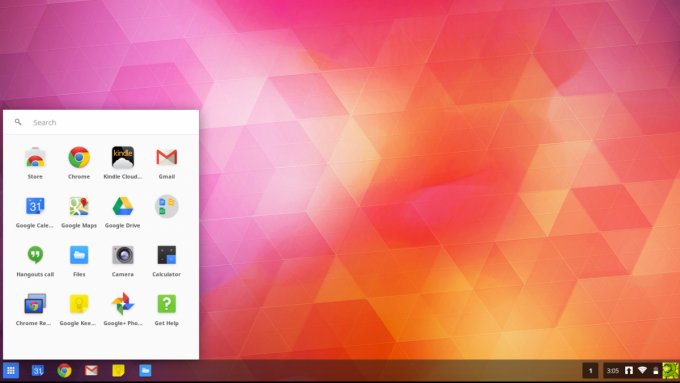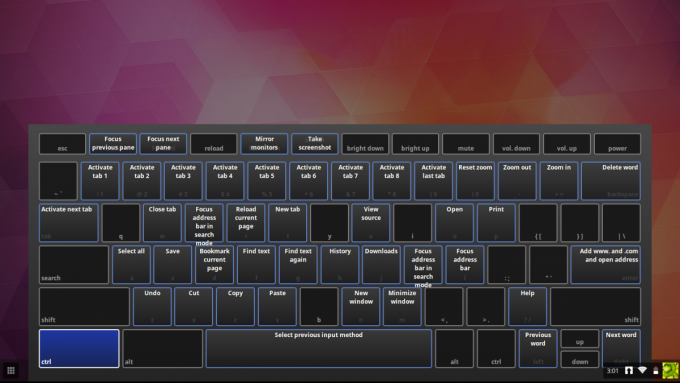You are here
Chromebook Acer C720 review: the browser is the operating system and it doesn't suck
It's 2014 and the present is not my grandfather's future. There's no race to colonize the moon and we are most assuredly not zipping around in jetpacks and flying cars. Most predictions fail, but some ghosts of future past are alive and well.
20 years ago I had my first run in with a web browser. I was browsing the NASA website at an Internet conference and it was a revelation! The BBS community I had grown up in was dead in the water. This would change everything. A couple of years later, the developer of Mosaic, Marc Anderseen, now heading Netscape made a prescient prediction:
In the future - the browser will be the operating system.
Unsurprisingly, this mobilized Microsoft to crush Netscape in what would become known by some as the browser wars, and the start of the end for Microsoft's reign of terror by others.
Netscape didn't stick around long enough to see Anderseen's prediction come to pass, but some technology trends are seemingly inexorable, or perhaps self fulfilling? 20 years after trying my first browser, I tried my first computer in which Anderseen's "the browser will be the operating system" vision has been fully realized. By Google, who supplanted Microsoft as the world's leading tech empire, in the form of a refurbished (never used) Acer C720 Chromebook which I picked up for a ridiculously low $180.
To my surprise... it's pretty good, and apparently I'm not the only one that thinks so because these things are flying off the shelves. The model I picked up is currently the most popular netbook on Amazon and is a steal even at the original price of $220.

Specs
Intel Celeron 2955U 1.4 GHz (2 MB Cache) 2 GB DDR3L SDRAM 32 GB Solid-State Drive 12-Inch Screen, Intel HD Graphics, HDMI output 8.5-hour battery life Weight is 1.25 KG
I've been using my new Acer C720 chromebook this week as a backup computer and it is surprisingly good, especially considering the price. This is the first Linux based laptop/netbook I would whole-heartedly recommend to non-tech savvy family members and friends.
What I like
- Amazing value
This thing costs about as much as the cheapest Intel NUC yet comes with memory, a hard drive, a screen and a keyboard - all in a very light, tightly integrated package.
- Good hardware, good Linux integration
- Cool and quiet
- Amazing battery life
- Very light
- You can replace the SSD if you want more storage
- Uses an open BIOS
- Best out of the box Linux support of any laptop type device I have ever owned. With Chromebook Linux isn't an option, it's the default. So everything works.
- Crazy fast boot/suspend time. Chromebook has the fastest Linux boot time I haver ever experienced. I plugged in the device and about a second or two later I was configuring it. It only takes about 3-4 seconds to reboot the device.
- Sleak button-less trackpad with support for gestures (e.g., click with two fingers for right click). The buttons are actually there, they're just hidden by the trackpad itself so if you click on the left corner of the trackpad that's a left click and clicking on the right corner is a right click. I just click on the trackpad itself unless I need drag and drop.
- Dedicated search button on the keyboard, doubles as an app launcher

- Innovative ChromeOS
- ChromeOS is a lightening quick Gentoo based OS that performs extremely well, especially considering there are only 2GBs of RAM in there. Seems very stable.
- The novelty of having Chrome run everything, including the shell. It's actually not that bad.
- Very good integration with Google apps (big surprise!)
- Surprisingly good usability. It's different from what I'm used to but I found it to be a consistent, tightly integrated experience.
- I'm a big fan of text to speech which is how I get most of my reading done nowadays. I started with the Kindle and moved on to Moon Reader+ on my phone. So I was delighted to discover ChromeOS features the best text-to-speech integration in any OS via the built-in ChromeVox functionality This is supposedly for vision impaired users but I've been finding it useful to have it read web content (e.g., Wikipedia) to me over breakfast.
To toggle ChromeVox on/off: Ctrl + Alt + Z
On ChromeBox is enabled, you change the speed with the { } keys. I read pretty quickly.
- Keyboard shortcuts for everything with onboard help

- High security, low maintenance
- Auto-updating / self-maintaining, like the Nexus phones
- Recovery mode resets to known good state.
- Designed with security in mind from the bottom up (assuming you trust Google of course): in non developer mode it uses tamper resistant keys stored in a TPM chip to verify the boot chain from the bootloader up so that installing malware isn't possible without physical modification of the laptop.
- Hacker friendly
- No need to jailbreak: You don't have to "jailbreak" it to get full access to your device as it's pretty easy to put into developer mode where you have full root access, can boot any OS from USB. You just run a bunch of cryptic commands and you're set.
- Runs Debian/Ubuntu side-by-side: In developer mode you can run alterate userlands (e.g., Debian/Ubuntu) side-by-side with ChromeOS in chroot using crouton. If you want to run an alternate desktop environment besides ChromeOS (e.g., XFCE, GNOME, Unity, etc.) to get a more conventional usage experience you can use crouton to launch an X server in the chroot. If you just need command line access you can use crouton to enter the chroot from within a ChromeOS shell. Crouton supports multiple chroots. Initially, my main impetus for exploring crouton was getting VLC to work since the ChromeOS default player is too basic.
- You don't have to keep ChromeOS: If you don't want to run ChromeOS you can replace it and install any operating system on this thing. Nice to know I have that freedom. Also, since ChromeOS is based on free software there shouldn't be issues with proprietary hardware support so other Linux distributions should run well on it.
- No need to jailbreak: You don't have to "jailbreak" it to get full access to your device as it's pretty easy to put into developer mode where you have full root access, can boot any OS from USB. You just run a bunch of cryptic commands and you're set.
What I don't like
- This is a cloud computer: Out of the box, it's not totally useless offline, but not far from it.
- It feels like I'm renting a computer from Google: Out of developer mode you are definitely playing 100% by Google's rules.
- No native apps: the only thing you can install (outside of dev) mode are Chrome extensions.
- Poor visibility of software updates: Chromebooks auto-updates themselves silently and invisibly, even in dev mode. You agree to that when you first setup the computer. As far as I can tell there's no device accessible changelog. Supposedly your system is getting the same updates discussed on the chrome releases blog but it's hard to tell. Maybe I just need to dig deeper in dev mode. I'm guessing the vast majority don't care anyway. At least not yet. They just want their Chromebook to work. It's a feature. Sure, if you don't trust Google or the OEM to auto-update your machine then you can turn off the update engine (in dev mode) but it's an out of the frying pan and into the fire (of exploitable security vulnerabilities) catch-22 type situation. By comparison on a regular Linux distribution you have the option to check the source code of each individual update (which you can build from source) before applying it. Bad stuff can still happen but less so.
- Doesn't support my favorite ebook format - Mobipocket: This might eventually be fixed by a Chrome extension, but right now the only supported ebook format is epub. Converting my ebooks is a hassle.
- Media player sucks: Built in media player is very limited compared with vlc. Not just in terms of support for subtitles, display ratios, but even basic stuff like codecs. The audio didn't work on half my sample videos.
- Small stuff:
- The keyboard shortcuts are not what I'm used to.
- No Android style Desktop widgets? Why not?
Comments
Android apps for ChromeBook would be awesome
Thanks Jeff! Before you mentioned it I didn't realize Google were already working on bringing Android apps to Chromebook. I just Googled that and found quite a bit of information about that.
Wow. So I guess that means Chromebook is about to get even better and even more of an irresistible offering, which means more high-quality, low-cost netbooks that have amazing support for free software and that everyday people can use. Win!
I bet Chromebook will eventually evolve to be good enough to make a real dent in Microsoft's dominance on the laptop/netbook front.
TBH I'm not sure...
I don't have a Chromebook nor have I even used one. But so long as there is a decent RDP app for the Chromebook then it shouldn't matter... When you do RDP you are using the resources of the Win computer you are connecting to. All your local computer is doing is drawing the graphics and transferring the info via the network (graphics in, mouse/keyboard out). Even the lowest specs Chromebook should be able to cope with that fine... If I can do it on my 3yo Anroid tablet then it should be a walk in the park on a Chromebook (although like I say that would be dependant on software side of things...).
Pages
Add new comment